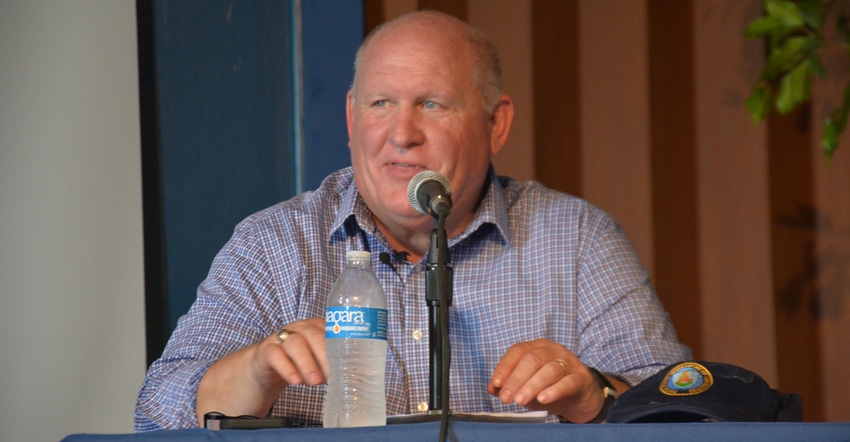
The COVID-19 pandemic highlighted many deficiencies in the agricultural system and rural America — the limits of our “just-in-time” food system was among the first to be exposed.
But Rep. Glenn “GT” Thompson thinks the pandemic exposed one issue above everything else: the need for rural broadband.
Speaking at Ag Progress Days, Thompson, the ranking leader of the House Agriculture Committee, told visitors that the pandemic exposed the need for rural broadband as people had to stay home for school and work, putting those without high-speed internet at a disadvantage.
Getting a long-term fix in place will take time, but Thompson says the issue has become a priority for the committee. In July, the committee passed the Broadband Internet Connections for Rural America Act, a $42.3 billion package that Thompson says is focused on the “last mile” of broadband connections — from transmission lines to homes.
Parts of the act could very well be rolled into the much larger Infrastructure Investment and Jobs Act — the $1.2 trillion package that was passed by the Senate and is now in the House for consideration. That bill already includes $65 billion for high-speed internet, but Thompson wants the committee’s bill to also come up for a vote.
He and Rep. David Scott, D-Georgia, chairman of the House Ag Committee, are considering sending the bill through as a “suspension,” a tactic that’s used to quickly move through noncontroversial bills quickly — think the naming of a post office.
Doing this requires passing a separate House motion that must be approved by two-thirds of the full House, no amendments and limiting debate to 40 minutes.
The committee’s bill, Thompson says, focuses more on last-mile connections than the larger infrastructure bill, including grants for community mapping that would map out where broadband connections are needed. It would also put rural broadband under the purview of USDA.
“USDA has got the personnel, the programs, the expertise in order to get this done,” he says.
If it fails, then rural broadband would have to passed as part of the larger infrastructure bill, and that presents another set of challenges: how to pay for it.
Thompson says that he opposes eliminating stepped-up basis or lowering the estate tax threshold as ways to pay for the larger bill. He and Sen. John Boozman, R-Ariz., sent these two proposals to the Texas A&M Agricultural Food Policy Center to see what the potential impact of these proposals would be on farmers.
The center did a model of 100 different farms representing different regions of the country and different commodities. Of the 100 farms evaluated, Thompson said that 98 would see an average increase in taxes of $1.4 million as a result of an estate passing down.
Talking carbon
Calling the growth of carbon programs and the companies introducing them as the “wild, Wild West” of agriculture, Thompson says that he doesn’t support the government coming in and running carbon markets, but he does think there’s room for the government to set the rules for the burgeoning market.
"The goal should be so that consumers are not taken advantage of, that's the role of government,” he says. “I just wouldn't want the government running the carbon banks. I don't think it would work out well. But providing some guiderails, providing some guidelines, to ensure consumers are not being taken advantage of makes a lot of sense to me."
Rick Ebert, president of Pennsylvania Farm Bureau, stressed to Thompson the need for the government to step in and set rules for companies doing business in the space, so farmers get paid fairly for their carbon sequestration contracts.
Thompson says that he supports a way to pay early adopters of carbon sequestration practices like no-till and cover crops — as many farmers on the East Coast have been no-tilling and cover cropping for many years — but he didn’t provide any specifics.
About the Author(s)
You May Also Like






